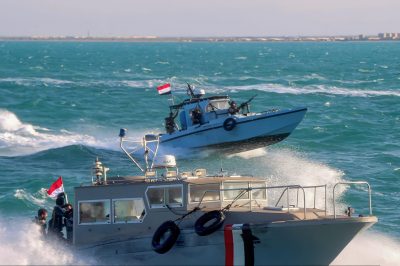Recent global developments have seen a group in the Middle East known as the Houthi group rising. Although it is not any new group or organization, the Houthi movement, which is officially known as the Ansar Allah (supporters of God), is a political and military organization that emerged from Yemen back in the 1990s.
According to Al Jazeera, this group controls most parts of Yemen, including the capital, Sanaa, and some land close to the borders of Saudi Arabia. Furthermore, the reports show that Yemen faced many humanitarian crises when the Houthi group rebelled against the sitting government, causing it to step down in 2014.
This group is nowadays again in conversations about their attacks on the civil and military ships in the Red Sea, disrupting maritime security. We will explore the role of the Houthi group in the ongoing scenarios and developments of the power dynamics in the Middle East.
Purpose of Attacking Ships in the Red Sea by Houthis
Now, the question that comes to mind is, why are Houthis attacking the ships crossing the Red Sea? So, for the answer, Houthis claim that their attacks are in opposition to Israel’s war against the Palestinians, mainly in the Gaza Strip. The group proclaimed that their attacks on the civil and military ships with potential links with Israel were to pressure Tel Aviv, Israel, to end its war on the people of Gaza. The Houthis took over Israel’s cargo ship (Galaxy Leader) on November 19, 2023, which was owned by an Israeli businessman and was operated by a Japanese firm. The Japanese government strongly condemns this action of the Houthis hijackers, and they have said that they are directly approaching the Houthis rebels to release the ship as soon as possible.
Consequences of Houthi Attacks in Red Sea
After the hijack, Israel put all the blame on Iran’s government by calling it an “Iranian act of terrorism” as it would cause maritime security crises. In response, Iran’s Ministry of Foreign Affairs spokesperson Nassar Kanaani denied Israel’s allegation of Iran’s involvement in the seizure of the ship.
In addition, Yahya Saree, Houthi military spokesperson, posted on X, saying, “If the international community is concerned about the regional security and stability, rather than expanding the conflict, it should put an end to Israel’s aggression against Gaza.” They also mentioned that Israel must allow more humanitarian aid into Gaza.
The group continued to attempt several attacks on the different vessels. It seized them because the Red Sea and the Suez Canal account for 30 percent of the world’s container ship traffic, and it caused the shipping companies to divert their ships’ routes, which they say crossed Africa instead.
US and UK Response to the Houthis Attacks Across the Red Sea
The US and UK response to the Houthis attacks in the Red Sea was swift and decisive, with both countries condemning the actions as a threat to regional stability. In a joint statement, both countries expressed their commitment to ensuring maritime security by using a comprehensive strategy to address the escalating situation.
Both the US and UK conducted air strikes to halt the Houthi attacks in the region. For example, Centcom reported launching two preemptive strikes on January 23 to stop imminent Houthi attacks. Recently, on January 19, they attempted an air strike on the missile sites of the Houthi group.
Also Read: Pakistan commends ICJ’s landmark decision on Gaza
In the MPs, the UK defense secretary, Grant Shapps, highlighted the continued risk of global navigation and shipping costs rising by as much as 300 percent. Shapps also said to the members of the parliament that the participation of the UK alongside the US destroyed the Houthi surface-to-air missiles.
On a media talk, John Kirby, National Security spokesperson, mentioned that the US strikes the three prominent Houthi positions. According to John Kirby, they have successfully targeted two headquarters buildings and an intelligence facility that the Houthis have operated. He mentioned that in response to an attack on US forces in Iraq, these strikes were carried out in self-defense, adhering to both international and domestic laws.
Moreover, Kirby added that a joint statement from 24 countries expresses support for the armed forces of the US and UK, along with partners from Australia, Bahrain, Canada, and the Netherlands, in their actions against the Houthis, condemning the group for its indiscriminate and unlawful attacks on international commerce.
Charting a Diplomatic Course for De-escalation in the Houthi Crises
To wrap up the discussion, the Houthi movement’s evolution from its roots in the 1990s has culminated in recent disruptions, notably the attacks on ships in the Red Sea. Triggered by their opposition to Israel’s actions in Gaza, these attacks escalated tensions in the region, drawing swift condemnation from the US and UK. The international community, supporting the military response, emphasized the need for maritime security. As we grapple with the repercussions of these events, it becomes clear that a diplomatic resolution is paramount. Lastly, global cooperation and sustained dialogue are imperative to address the root causes, alleviate humanitarian crises, and foster lasting peace in the Middle East.

A student of Governance and Public Policy, passionate about exploring world affairs, geopolitics, and diplomatic intricacies. Also through insightful research, aiming to contribute to global governance and diplomacy.









One response
Amazing article..a short and informative article!..describes your ability of writing i wish you would write more articles for us wish you all the best.